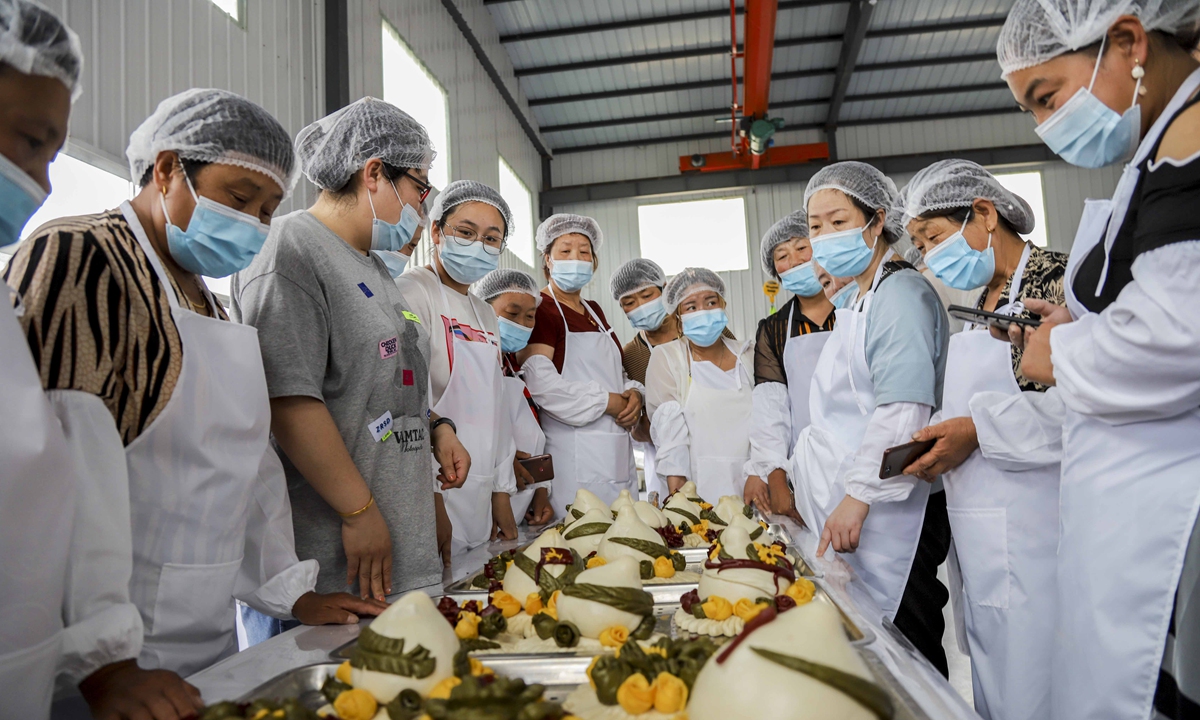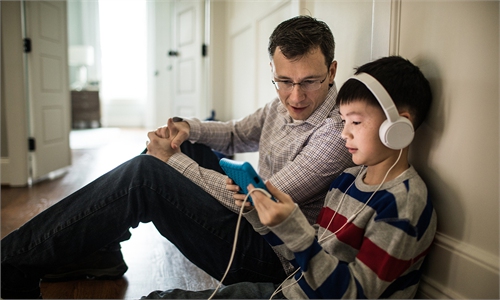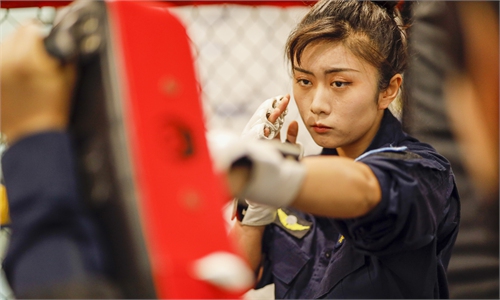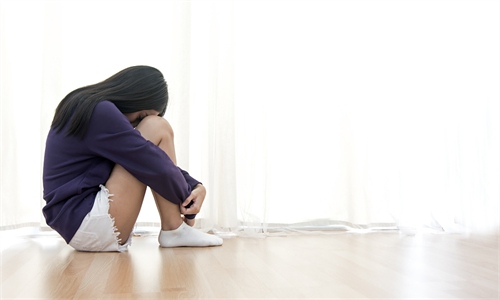
The Human Resources and Social Security Bureau of Qingdao West Coast New Area in East China's Shandong Province conducted Chinese pastry skills training for more than 30 rural women from Huangzhuang village on June 29. Photo: IC
The State Council, China's cabinet, has unveiled the outlines of a development plan for women and children over the coming decade that aims to boost the birth rate by achieving a gender-equal society.
Specific measures include reducing the number of abortions performed for "non-medical purposes," reversing the tendency to favor male babies and encouraging couples to do house chores jointly.
The Outline of Women's Development in China (2021-30) and the Outline on the Development of Chinese Children (2021-30) are set to promote gender equality and let birth policies work with economic and social policies, said the State Council.
The specific measures for women's development include reducing the number of abortions performed for "non-medical purposes," which is aimed at improving women's reproductive health.
Other measures include ensuring marriage freedom for women of all ethnic groups, reversing the preference for male children and encouraging couples to jointly share house chores.
It also mentioned tax reductions for raising children.
The document for women proposed 75 main goals and 93 supporting measures covering eight areas including health, education and the economy.
He Yafu, an independent demographer, said the new outlines are the government's attempt to form a more gender equal society, in order to boost the birth rate.
"Take sharing house chores as an example. The reason why Sweden enjoys such a high birth rate is because Swedish couples are likely to share responsibility for supporting the family and raising children jointly. In Japan, the task of taking care of children is mostly in women's hands, that's partly why Japan sees such a low birth rate," He told the Global Times.
He said that compared with previous outlines and white papers on gender equality and childbirth, this one is more detailed, as it has a lengthy description of alleviating burdens for couples in having babies and raising them.
China in June said that it would allow all couples to have three children instead of two, and later issued policies designed to reduce the financial burden of raising children.
China's National Health Commission said during a Monday conference it would take steps to "release" young people's willingness to have children, including exploring parental leave policies, supporting policies on housing, and encouraging employers to offer flexible working hours to parents.
The Outline on the Development of Chinese Children (2021-30), issued at the same time, has 70 major objectives and 89 measures, focusing on children's health, safety, education and other issues, which were hailed by observers as ensuring "healthy birth and good child care."
Specific measures include controlling children's myopia, strengthening their physical health and providing them with sex education and relevant services. The State Council also said that internet games and livestreaming platforms should limit time for underage users. Children under 16 years old are banned from livestreaming.
The outline also said that underage groups' worship of celebrities, money and wealth flaunting behaviors should be strictly regulated. This was issued at the crosshair when China is strictly regulating "fan circle" culture in the entertainment industry, tackling the long-controversial moves by teenage fans that blindly idolize celebrities, excessively spend money on their "idols."
To reduce the academic burden of children and their parents and guarantee a healthy social environment for children, the Chinese government has rolled out series of measures.
These include the suspension of off-campus curriculum courses for students on national holidays, reducing the frequency of exams, and stipulating that online gamers under the age of 18 will only be allowed to play for an hour on weekends and holidays.




